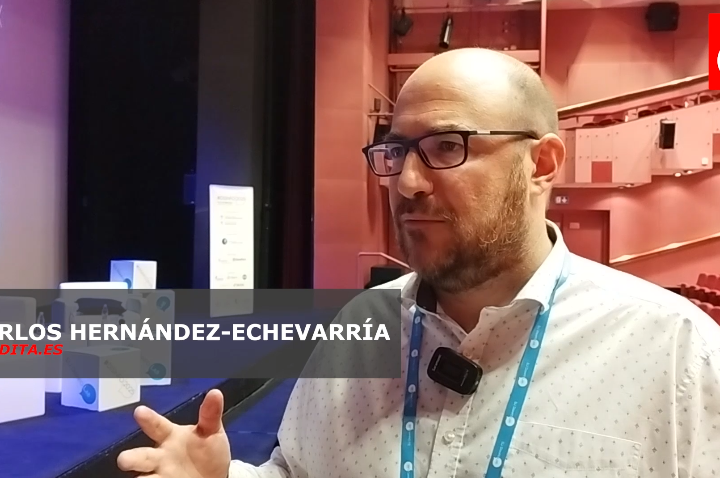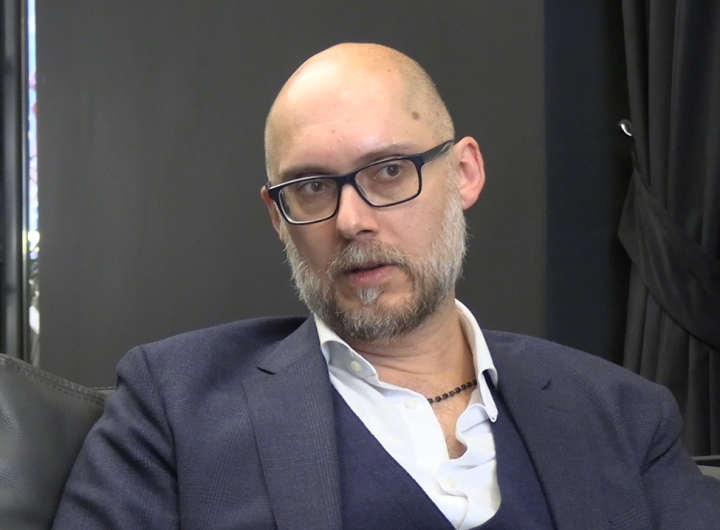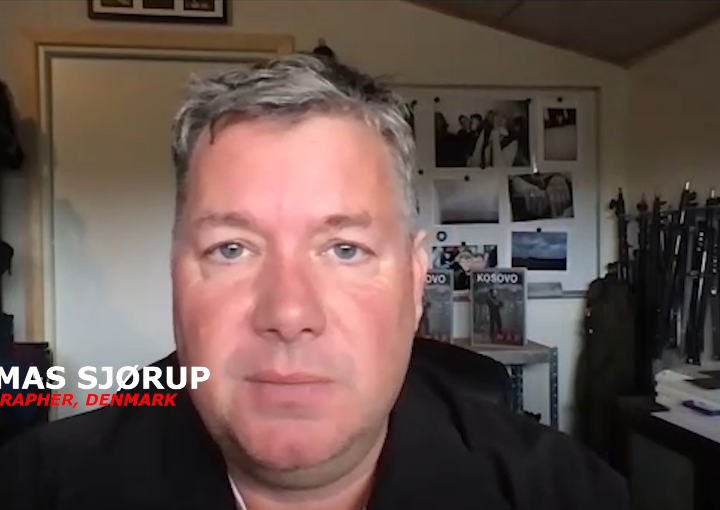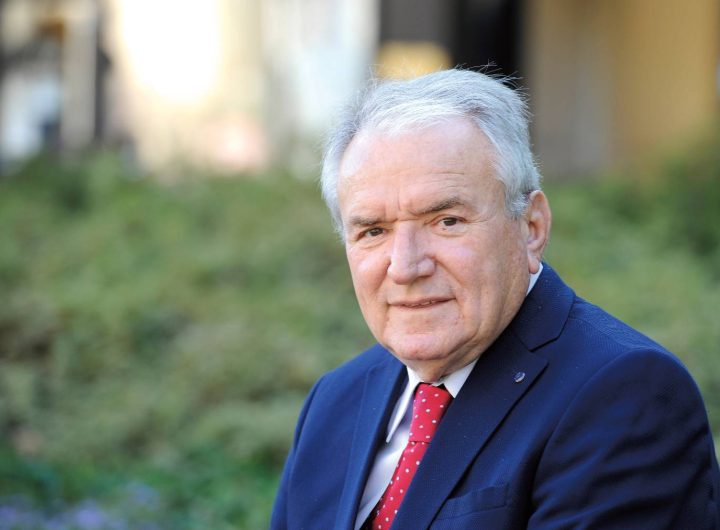
Recently, a group of Ukrainian women leaders visited Kosovo as part of the project ‘TRENDS IN THE AREA OF WOMEN, PEACE AND SECURITY: THE CASE OF THE WESTERN BALKANS AND UKRAINE’.
Anna Nikolaenko, co-founder and project manager of the Day After Foundation, an expert on women’s participation in security and peacebuilding, told The Geopost how the experience of the Balkan countries can help build post-war Ukraine.
It is worth noting that the Day After Foundation is a non-profit NGO founded in September 2024 in Kyiv. The organisation’s website states that their goal is to contribute to building sustainable peace through the active participation of women in the processes of reconciliation, restoration and strengthening of social cohesion at both national and international levels.
The full interview is available here:
The Geopost: Good afternoon, Anna. We are pleased to welcome you to the capital of the Republic of Kosovo, Pristina. Please tell us, I know that you are a co-organiser of the Day After Foundation, what is your role in this organisation? What do you do?
Nikolaenko: Good afternoon, thank you very much. Yes, indeed, I am one of the co-founders of the Day After Foundation. We have three co-founders in the foundation (Iryna Drobovych, Alina Myakienka and Anna Nikolaenko, ed.). We have quite a lot of experience working with women, with women’s rights, women’s leadership, and gender policy. Therefore, in principle, in our work we complement each other both expertly and organisationally. My work as a co-founder is more about ensuring the organisation’s operational activities and implementing programmes.
The Geopost: What is the purpose of the organisation?
Nikolaenko: The main goal of our activity is to dedicate the contribution of women to the development of our state, namely to the processes of peacebuilding, to the processes of post-conflict recovery. And, in general, to make sure that the achievements that have already been made by our women are only strengthened, that they have a platform where they can share their expertise and their achievements. And they could also further convert these skills into their political and social activities.
The Geopost: You are currently in the Balkans. When you came here, what goals did you set for yourself and did your expectations come true?
Nikolaenko: I don’t think we can say that these expectations have been met. I think the experience we got here was much broader than what I personally hoped for.
It is at the same time a very different experience, but at the same time very similar to what we are going through now, what our society is going through and what it is facing. Perhaps the main conclusion for me is that the first country we visited was Bosnia and Herzegovina. Now we are in Kosovo, and this is a completely different experience. And we take different lessons from Bosnia and Herzegovina and Kosovo.
Speaking specifically about the experience of Kosovo, I knew before I came here that there is a very powerful women’s movement here. There are more than a hundred NGOs here that are founded by women and led by women. But I had no idea how powerful their activities are here, how much influence they have on the formation of state policies.
And that’s probably the biggest thing that struck me here.
The Geopost: What useful lessons from the experience of Kosovo can you take with you to Ukraine and implement in Ukraine?
Nikolaenko: For me, this is, first of all, consistency. The systematic nature of their approach to post-war settlement and post-conflict recovery. This is the creation of national mechanisms. And this is the cooperation of all actors in society. That is, as I said, a very powerful public sector, a very powerful social movement.
It interacts with the main stakeholders, interacts with government policy makers, with the state apparatus. And it seems to me that this synergy helps, first of all, to convey the needs of the population to those who create public policy. And I think that the systematic approach that exists here and the national mechanisms that have been created are the results of such cooperation and unity in this work.
The Geopost: A little bit personal. What did you know about Kosovo before planning this trip, and what surprised you most about the country? What stuck out to you?
Nikolaenko: I’ll start with the latter. The thing that caught my eye was the very open society. Our visit is quite short, we are here for only two days. At the moment, we have spent a little less than a day and a half here. But this openness, their willingness to share their experience in general, is very impressive.
And I think that the fact that both our society and theirs had such a common experience of war and crisis is a unifying factor. And we understand each other better, understand each other’s needs better. And it is very valuable from their side that they support us, that they show solidarity, especially at the level of NGOs that we met with, activists.
It is very tangible, it is very motivating. And we will definitely continue to share this experience in Ukraine and apply it in our work as best practice.
The Geopost: As you know, Russian propaganda has reached the Balkans, and a lot of information about the events in Ukraine, about the war, is being presented through the prism of Russian disinformation. Have you encountered such cases in your work?
Nikolaenko: I can’t give you any specific examples right now, but I can say that propaganda is indeed one of the tools of information warfare. And, perhaps, like everywhere else in the world, we are facing the consequences of this propaganda. And our self-imposed task, as representatives of our country, is to do such educational work, to talk about the state of affairs, what Ukrainians want and what they are fighting for.
And I think we get 100% support from the public here.
/ The Geopost

 Russia is using disinformation to influence Western democracies
Russia is using disinformation to influence Western democracies  “Disinformation is becoming more sophisticated,” Alexandre Alaphilippe talks about global challenges and the role of AI
“Disinformation is becoming more sophisticated,” Alexandre Alaphilippe talks about global challenges and the role of AI  Paolo Palumbo: Russia is strengthening disinformation campaigns through artificial intelligence
Paolo Palumbo: Russia is strengthening disinformation campaigns through artificial intelligence  Professor Iztok Prezelj: Balkans influenced by external powers, Serbia serves as an entry point for Russia
Professor Iztok Prezelj: Balkans influenced by external powers, Serbia serves as an entry point for Russia  Kosovo through the lens, interview with the photojournalist of 1999
Kosovo through the lens, interview with the photojournalist of 1999  Djukic for The Geopost: There is a civil war in Serbia, the final outcome will be known in a few weeks
Djukic for The Geopost: There is a civil war in Serbia, the final outcome will be known in a few weeks